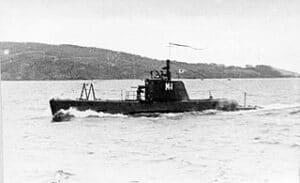Home » Careers • News Stories » Tailoring Your Resume For Specific Job Roles
Tailoring Your Resume For Specific Job Roles
https://www.whatjobs.com/news/news-stories/tailoring-your-resume-for-specific-job-roles

By Hugh Fort in Careers, posted November 7, 2023

Gone were those days when employers accepted all types of generic resumes in their front doors.
Now, hiring managers have become more meticulous and analytic when accepting resumes from their applicants.
Not only does this lessen their burden of dealing with hundreds of resumes on their desk, but it also helps them choose better and more deserving candidates.
Thus, tailoring your resume for specific job roles is paramount to stand out from the competition and boost your chances of securing an interview.
While a generic resume may seem convenient, customizing your resume for each job application can better highlight your relevant skills and experiences.
Remember, your resume is your first opportunity to make a lasting impression on potential employers.
So, you need to ensure it speaks directly to the requirements and expectations of the job you're applying for.
In this article, you will find some tips and strategies to help you effectively tailor your resume for specific job roles
- Review and Understand the Job Description
The first step in tailoring your resume is to thoroughly understand the job description for the position you're applying for.
This is your roadmap for customizing your resume to match the employer's specific needs.
Take note of the key qualifications, skills, and responsibilities mentioned in the job posting. These are the elements you'll need to highlight in your resume.
You must also pay close attention to the keywords and phrases that appear multiple times or stand out as critical requirements.
These keywords will be crucial in aligning your resume with the specific job role and catching the attention of hiring managers using applicant tracking systems (ATS).
It also helps you to refer to some resume examples that demonstrate how to align your current qualifications to the requirements mentioned in the job description.
- Identify Your Key Skills and Achievements
Once you’ve dissected the job description, it's time to identify the key skills and achievements from your own professional history that are most relevant to the job. Your resume should reflect your best qualifications to showcase your suitability for the role.
Use quantifiable achievements whenever possible to demonstrate your impact and proficiency in these areas.
If you’ve earned numerous professional job experiences and achievements in the past, it may help you to create a master resume.
For starters, a master resume is a comprehensive document that includes all your professional experiences, skills, and achievements from various industries you’ve worked for.
With this master document, you can easily pick and choose the most relevant information for each application to incorporate into your actual resume.
Be sure to keep your master resume updated as you gain new skills and experiences so you can refer to this every time you create a resume for different job positions.
When applying for a specific job role, you must prioritize the content on your resume. Review your master resume and select the most relevant information based on the job description.
Highlight experiences and skills that align with the employer's needs and place them at the forefront of your resume. By doing so, you will immediately capture the hiring manager's attention and show that you meet their specific requirements.
To make your resume more engaging and effective, use action verbs in your job descriptions. Action verbs add a sense of dynamism to your resume, making your accomplishments stand out.
For instance, instead of noting, ‘Responsible for managing a team,’ say, ‘Managed a high-performing team, achieving a 20% increase in productivity.’ This gives potential employers a clearer picture of your achievements.
- Customize Your Professional Summary
Your professional summary or objective statement is the first thing employers read on your resume. Make sure it reflects your suitability for the specific job role. Tailor this section to match the job description, highlighting your key qualifications, skills, and experiences. That way, you'll immediately grab the employer's attention and encourage them to continue reading.
- Highlight Relevant Experience
When listing your work experience, emphasize positions and responsibilities that directly relate to the job you're applying for.
Don't shy away from removing or de-emphasizing less relevant roles. The goal is to make it easy for the employer to see how your past experiences make you an ideal fit for the current position.
- Showcase Your Achievements
Instead of just writing down your job duties, focus on your accomplishments within each role. Use quantifiable metrics to demonstrate the impact you've had on previous employers.
For example, mention how you increased sales by a certain percentage, saved the company money, or improved a process. This data-backed approach makes your resume more convincing.
- Tailor Your Skills Section
Your skills section should directly mirror the qualifications required for the job. Include both hard and soft skills that are pertinent to the role, and make sure they match the keywords in the job description.
This not only helps your resume pass through applicant tracking systems (ATS) but also shows that you have the necessary skills for the job.
- Include Relevant Certifications and Training
If you have certifications or training relevant to the job you're applying for, include them on your resume. These additional qualifications can set you apart from other candidates and demonstrate your commitment to professional development.
- Mention Relevant Awards and Recognition
If you've received awards or recognition in your previous roles pertinent to the job you're seeking, remember to mention them. This can reinforce your credibility and show you have a track record of excellence in your field.
- Tailor Your Education Section
Your education section is an essential part of your resume, but it doesn't always need to take center stage. If you have significant work experience, place your education section after your professional experience. However, make sure to include any degrees or coursework that are relevant to the job. Emphasize your academic achievements that are directly related to the position.
- Customize Your Cover Letter
Your resume and cover letter are expected to complement each other. While your resume focuses on your qualifications and professional experiences, your cover letter allows you to express your enthusiasm for the specific job role. Reference the job description and explain in your cover letter how your current skills and experiences make you the perfect candidate.
Before submitting your tailored resume, carefully proofread and edit it. Typos, grammatical errors, or formatting issues can quickly disqualify you from consideration. A well-organized, error-free resume reflects your attention to detail and professionalism.
- Consider Formatting and Layout
Proper formatting and layout can make a significant difference in the readability and visual appeal of your resume. Use clear headings and subheadings to organize your resume into sections.
Use bullet points to present information and make it easier for recruiters to scan and identify relevant details quickly.
A well-organized and visually appealing resume can form a positive impression and boost the likelihood of your document standing out.
After creating your tailored resume, consider seeking feedback from peers, mentors, or professional resume writers. These people can provide valuable insights and suggestions for further improvement.
Fresh eyes can help you identify areas where your resume can be fine-tuned.
Key Takeaway
In today's competitive job market, customizing your resume for specific job roles is essential for success.
With this guide, you can create a targeted resume that effectively communicates your qualifications and catches the attention of potential employers.
Remember, a tailored resume can be the key to unlocking new opportunities and achieving career success.
Good luck in your job search!
Follow us on YouTube, X, LinkedIn, and Facebook.












